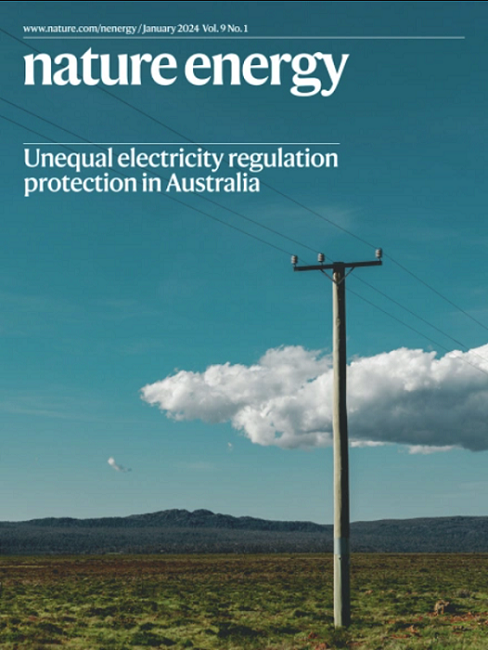Understanding non-compliance
IF 60.1
1区 材料科学
Q1 ENERGY & FUELS
引用次数: 0
理解不符合
随着太阳能光伏发电和电池储能等分布式能源(DER)在消费者层面的普及,它们在电网中的作用比例也在不断增加。在全球范围内,各公司都出台了有关 DER 集成的规则。然而,规避正式流程的情况并不少见,许多国家都出现了未经授权使用 DER 的情况,这给电网管理和电力系统成本带来了挑战。现在,斯泰伦博斯大学的 Josh Dippenaar 和 Bernard Bekker 评估了影响南非 DER 安装合规性的因素,以及不同的公用事业管理方法会如何影响在公用事业层面投资分布式能源的论点。结合公用事业收入建模和对南非 DER 安装商的调查,对南非三个拥有自己互联政策的城市(开普敦、纳尔逊-曼德拉湾和茨瓦内)进行了比较和分析,以更好地了解导致 DER 合规性水平不同的因素。研究小组发现,纳尔逊-曼德拉湾通过为注册 DER 提供强有力的经济激励,实现了比开普敦和茨瓦内更高的合规水平。缺乏执行力、投资回收期长、对公用事业缺乏信任、审批流程冗长以及电网可靠性不足也是影响 DER 合规率的重要因素。这些研究结果为我们提供了深入的见解,使我们认识到早期阶段的财政支持和更有效的注册实践对于吸引 DERs 合法注册的重要性,这也是公正的能源转型的一部分。
本文章由计算机程序翻译,如有差异,请以英文原文为准。
求助全文
约1分钟内获得全文
求助全文
来源期刊

Nature Energy
Energy-Energy Engineering and Power Technology
CiteScore
75.10
自引率
1.10%
发文量
193
期刊介绍:
Nature Energy is a monthly, online-only journal committed to showcasing the most impactful research on energy, covering everything from its generation and distribution to the societal implications of energy technologies and policies.
With a focus on exploring all facets of the ongoing energy discourse, Nature Energy delves into topics such as energy generation, storage, distribution, management, and the societal impacts of energy technologies and policies. Emphasizing studies that push the boundaries of knowledge and contribute to the development of next-generation solutions, the journal serves as a platform for the exchange of ideas among stakeholders at the forefront of the energy sector.
Maintaining the hallmark standards of the Nature brand, Nature Energy boasts a dedicated team of professional editors, a rigorous peer-review process, meticulous copy-editing and production, rapid publication times, and editorial independence.
In addition to original research articles, Nature Energy also publishes a range of content types, including Comments, Perspectives, Reviews, News & Views, Features, and Correspondence, covering a diverse array of disciplines relevant to the field of energy.
 求助内容:
求助内容: 应助结果提醒方式:
应助结果提醒方式:


